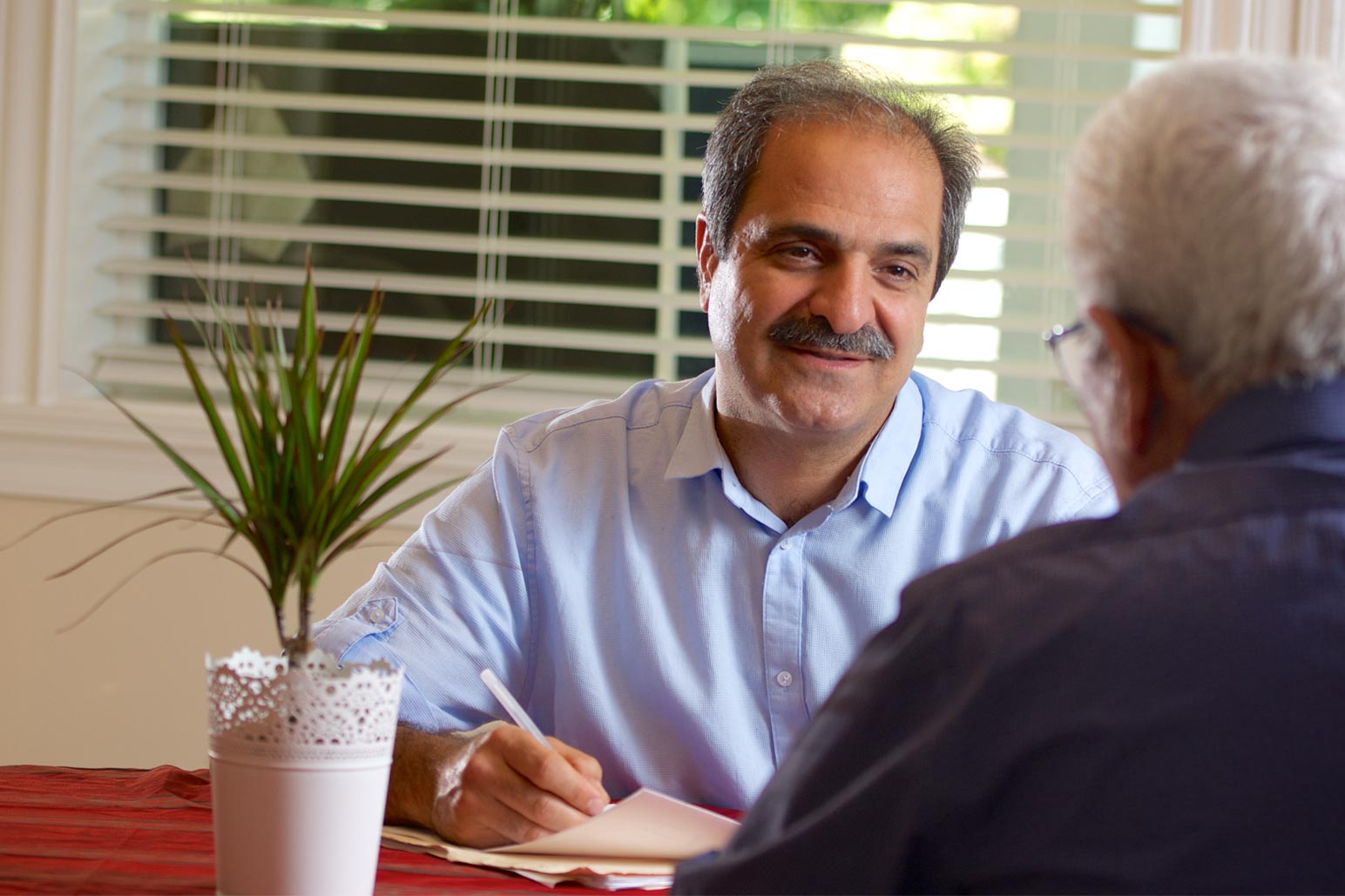CONCUSSION AND TRAUMATIC BRAIN INJURY REHABILITATION
Concussion or traumatic brain injury rehabilitation is a hot topic these days. Many of us know people who may have had an injury and would like to know more in order to support them. We hope you find some of the answers you are seeking in this article.
What is a traumatic brain injury?
Traumatic brain injury, or TBI, is an injury to your brain, plain and simple. This can manifest from a mild concussion to severe cognitive damage.
TBI is caused when the brain is subject to sudden movements that cause the brain to bounce or twist inside the skull. This leads to the brain’s cells being stretched and damaged and may even cause chemical changes in the brain. Examples of such traumatizing forces are blows to the head such as car accidents or sporting injuries, and falls.
What is a concussion?
A concussion is a mild traumatic brain injury and must always be taken very seriously. Successive concussions can be exponentially worse. The more we learn about the brain, the more we realize how impactful and damaging concussion can be.
What are the symptoms of a traumatic brain injury (TBI) or a concussion?
Symptoms of a TBI or concussion range from mild to severe and can last for hours, days, weeks, months, or longer.
These symptoms may include:
| - Confusion, disorientation | - Sad, nervous, or easily angered |
| - Not thinking clearly | - Sleeping more or less than usual |
| - Trouble remembering new information | - Headaches, vision problems, or dizziness |
| - Nausea and vomiting | - Trouble speaking coherently |
| - Ringing in the ears |
If you, or someone you know, develop any of these symptoms following a head injury – even a significant time after such an injury – you, or they, need to consult with a physician. If you believe you are experiencing some of the above symptoms of a brain injury, it can be helpful to ask a trusted friend or family member to help monitor your symptoms.
HOW IS A TBI DIAGNOSED?
Physicians use a combination of methods to diagnose TBI:

- Gather information about the injury and symptoms.
- Examination by a Neurologist to evaluate memory and thinking, as well as other indicators of brain function such as vision, hearing, touch, balance, and reflexes.
- Use imaging tests such as a CT scan or MRI to ensure that the brain is not bleeding, swollen, or bruised.
Be sure to let your doctor know if you’re taking any medications (including natural remedies), especially blood thinners such as Coumadin and Aspirin. Also, inform your doctor if you drink alcohol or take drugs recreationally.
Brain Injury Rehabilitation
All too often, we want to rush back to our busy lives and do not take the time for brain injury rehabilitation. However, brain injuries are different than physical injuries and if your brain needs additional time and treatment, it will take that time one way or another.
Treatment and concussion rehabilitation might include any of the following:
- Occupational therapy or physical therapy – Help maximize the ability to conduct daily activities.
- Speech and language therapy – Help with comprehension and communication.
- Counseling – Help feel more in control and support the resumption of life's activities.
- Social support and support groups – Provides the opportunity to connect with people who are experiencing similar challenges.
- Pharmacology – Help alleviate symptoms like poor sleep hygiene, chronic pain, and headaches. Can also assist with overlaying complications such as anxiety, depression, or memory issues. Please talk with your doctor before taking any medications.
You may wish to try a few different types of therapy before finding the ones that best help you. The best approach is often a combination of therapies. Your health professionals can help you find the right treatment for you.
Successful brain injury rehabilitation and concussion rehab treatment can help you regain control of your life and emotions, reduce and/or eliminate symptoms, and allow you to enjoy life again.
How to recover from a traumatic brain injury.
An injured brain needs time to heal. In addition to treatment and therapy, rest is the best way to support your concussion rehabilitation.
Here are some tips to help your brain injury rehabilitation:
- Get plenty of sleep
- Take it easy during the day, slow the pace of your life a bit
- Avoid drugs and alcohol
- Return to normal activities and pace gradually
- Check with your doctor before you drive a car, ride a bike, or operate machinery.
- Avoid stress and physically or mentally demanding activities that aggravate symptoms
- Ask your doctor about any medications or supplements
Long after the event that caused the traumatic brain injury, you may still feel mental and physical effects. New symptoms may even develop. Monitor your symptoms to be aware of the following, and see your doctor if any of these symptoms linger, reappear, or develop:
- Headaches/Migraines: Headaches are especially common after a brain injury, even months later. Keep a watch on frequency and severity. Seek medical advice if you are experiencing headaches more frequently, for longer periods of time, or of greater severity.
- Memory or cognitive issues: Brain injuries can make it hard for you to learn a lot of new information at once, affect your concentration, or affect your ability to remember things that just happened.
- Communication: You may experience feelings of disorientation, or even have trouble speaking, expressing yourself clearly, or understanding what others are saying.
- Emotions: Emotions common to TBI include anxiety or depression, rapid mood changes, or loss of interest.
- Sleep: Your normal sleep patterns may change. You may not be able to fall or stay asleep or require a different amount of sleep.
Seek a health care professional’s assistance if you or someone you know, present with any of the following conditions:
- Drug or Alcohol use: Some turn to drugs and/or alcohol to deal with symptoms of anxiety, depression, and stress or to feel normal or accepted. If you’re experiencing difficulties with drugs or alcohol, treatment can help.
- Post-Traumatic Stress Syndrome (PTSS): Along with the physical damage, you might have long-lasting effects from the trauma of the injury. You may fear the loss of safety or control in your life. You may begin to disassociate with people, avoid interaction by working all of the time or escape by abusing alcohol or drugs. PTSD needs professional treatment. Talk to your doctor to determine a course of action.
- Developmental problems: For children, even a mild brain injury can interrupt the brain's normal development. This can have a permanent impact on a child. If your child has suffered a head injury and is exhibiting behaviours that are abnormal, contact your doctor immediately.
- Mental Health problems: If you find you are feeling sad or aren't able to enjoy regular daily activities as you did prior to the accident, talk to your doctor. You may have slight depression, which is a common feature of brain injury.
What can you do for someone who's had a brain injury?
If someone you care about has survived a TBI and is exhibiting some of the symptoms we have identified above, you may feel helpless. It is hard to watch a loved one struggle, especially if it extends to speech and memory impairment, or chronic pain. There are ways that you can help them with their injury rehabilitation.
Here is what you can do to help:
- Help them find treatment and support them to stay committed to their therapy.
- Learn more about brain injuries and symptoms.
- Help the person stay active, ensuring they are eating healthy, getting rest, and avoiding/limiting use of recreational drugs and alcohol.
- Help the person focus on the present, setting small, obtainable goals on the way to getting better.
- If the person is not getting better, help them get treatment.
A traumatic brain injury or concussion can seem like the end to a productive and enjoyable life. This is rarely the case and it is important to be realistic about the work required to rehabilitate the injury. However, it is equally important to note that working with an occupational therapist (OT) and with the right support, commitment, and time, the impacts of the injury can be diminished in part or completely.
Our OTs routinely manage rehabilitation plans for TBI and concussion clients. Often there are multiple health professionals and stakeholders involved, and our OTs can manage the “team” to best utilize the specialized skills of many versus one.
If you would like to book a consultation or an assessment, please contact us at hello@RaincoastRehab.ca.
© RAINCOAST COMMUNITY REHABILITATION SERVICES INC











